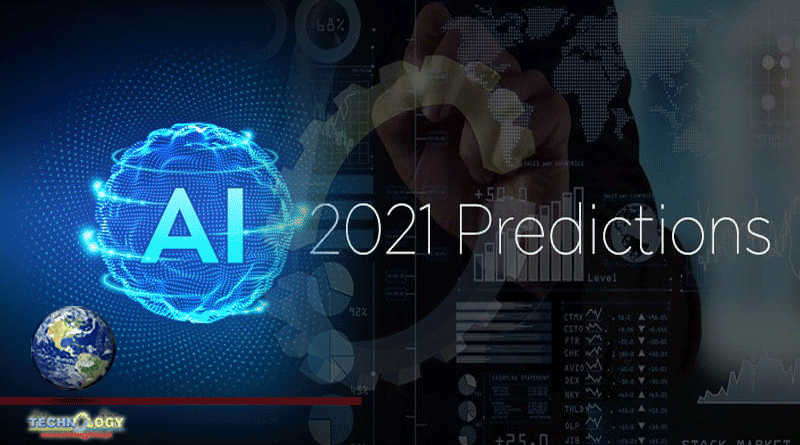As I Bid Goodbye To 2020, Allow Me To Close The Year With The Prediction That We Would See AI Go Mainstream In 2021.

My last column for 2019 was titled “Artificial intelligence will be more than just talk in 2020.” As I bid goodbye to 2020, allow me to close the year with the prediction that we would see AI go mainstream in 2021. In his December 21 Forbes website article, titled “Why Covid Will Make AI Go Mainstream In 2021,” data scientist Ganes Kesari predicts AI will transform 2021 by accelerating pharmaceutical drug discovery beyond Covid-19. He says the face of telecommuting would change, and that AI would transform edge computing and make devices around us truly intelligent.
A recent article on the Wiley Online Library website, titled “How artificial intelligence may help the Covid-19 pandemic: Pitfalls and lessons for the future” by Yashpal Singh Malik, et al., presents an overview of the prospective applications of the AI model systems in healthcare settings during the Covid-19 pandemic. In it, the authors highlighted the uses of AI-based approaches in healthcare during the pandemic where AI-based technologies and methods were deployed in modelling the virus spread and optimal utilization of resources. The “protein folding problem,” a grand challenge of biology that had puzzled scientists for 50 years, was solved through AlphaFold, an AI program developed by Google’s DeepMind. It’s a big deal for scientists developing a new drug because it helps them predict the protein’s shape that will help come up with a molecule that could bind to it, fitting into it to alter its behavior. AI also helped fast-track the coronavirus vaccine, cutting development to 10 months instead of years or decades. Malik and his co-authors agreed that “AI-based tools may not totally replace human brain in terms of observations made by virologists, epidemiologists or clinicians; however, the value of AI will play a significant and complementary role by reducing the burden on each stakeholder.”
Aside from drug discovery and development, Kesari predicts AI would transform telecommuting and unlock the future of work. Ninety-three percent of respondents in a McKinsey & Company global survey of executives reported an increase in remote working and/or collaboration, with over half of them believing that the shift to remote work would continue. Most of us are into video conferencing applications, but the shift from virtual meetings to virtual workspaces would become more apparent in 2021. Merging mixed reality, 5G, and AI will fuel this trend. I observed this transformation when I was dabbling with the “Productivity and collaboration” apps in Oculus Quest 2, such as Immersed, vSpatial and Spatial. Facebook launched Oculus for Business, an all-in-one enterprise platform to support companies deploying virtual reality (VR) in the workplace. The possibility of a VR office is not just about holding meetings. Collaborating and socializing in the virtual space will take place. For example, Spatial empowers remote team member, each represented by a photorealistic 3D avatar, to meet and collaborate in virtual project rooms. Soon, physical presence of companies will be replicated in an immersive virtual reality.
“In 2021 we will see AI, machine learning, and Internet of Things (IoT) define and shape our lives and behaviors, a phenomenon that will continue for many years to come”, says Manoj Choudhary, CTO at Jitterbit. Like Kesari, Choudhary thinks the “real star that companies will turn to will be the enabling technologies, such as cloud and edge computing.” Forrester predicts that 2021 would be the year when edge computing would take off, which would continue to dominate because of their ability to process and manage all the data that fuels AI, machine learning, and IoT. High-speed chips from Intel and Nvidia, and the rollout of 5G will drive this change. Edge computing will eat into the public cloud’s growth by shaving five percentage points off cloud growth next year.
A prediction at InsideBigData says most consumers would continue to be skeptical of AI. Many don’t understand it or even realize they’re using AI-powered services for free — Facebook, Google, TikTok, etc. People should make the effort to understanding the pros and cons in surrendering personal data records to the big data companies. The conversation about AI belongs to everyone, not just people working in the AI ecosystem.
This news was originally published at Manila Times
